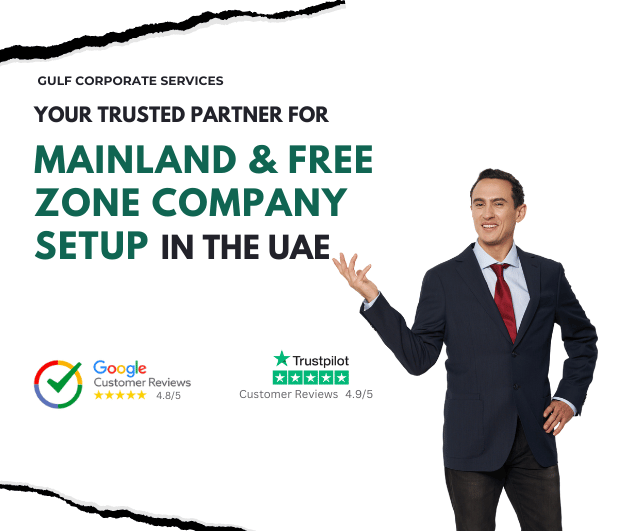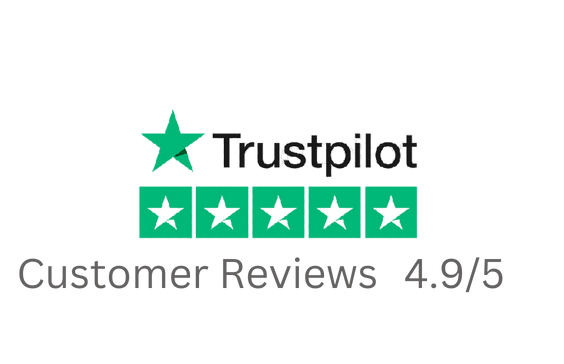
Dubai’s meteoric rise as a global business destination is no accident. The city has purposefully positioned itself as a hub for international trade, cutting-edge innovation, and strategic connectivity. Over the past few decades, it has crafted a regulatory framework and infrastructure that welcomes entrepreneurs and investors from around the world. If you’ve ever considered doing business in the Middle East, Dubai likely sits at the top of your list. Establishing a Limited Liability Company (LLC) here opens a gateway to thriving local markets, robust consumer demand, and a prime location for regional expansion. In essence, LLC company formation in Dubai is an opportunity not only to tap into local prosperity but to leverage the city’s global reach. This guide aims to demystify the process, step-by-step, while highlighting best practices and potential pitfalls so you can lay the groundwork for sustainable growth.
Understanding the Concept of an LLC in Dubai
Before diving into formalities, let’s first clarify what an LLC is within the Dubai context. A Limited Liability Company is a popular corporate structure in which shareholders’ liability is limited to the amount of their shares. This structure provides a safety net, ensuring that personal assets remain protected if the company faces financial difficulties. In Dubai, the LLC model has historically required a local partner or sponsor. However, with recent legal reforms, 100% foreign ownership is now possible in many cases, drastically reducing barriers and giving foreign entrepreneurs far more control over their ventures. Beyond this critical advantage, LLCs in Dubai benefit from an established legal framework designed to encourage foreign direct investment and economic diversification. An LLC in Dubai usually allows you to operate across the entire local market (mainland), secure lucrative government contracts, and engage freely with customers and suppliers. These attributes, combined with a credible, internationally recognized corporate structure, make the LLC an appealing option for entrepreneurs who intend to build a long-term presence in the UAE.
Advantages of LLC Company Formation in Dubai
Forming an LLC in Dubai offers a host of benefits that align well with both short-term profitability and long-term strategic goals.
- Market Access and Flexibility:
With a mainland LLC, you’re not confined to a specific geographic zone or industry niche. You can sell products and services directly to customers throughout Dubai and the UAE. This wide latitude fosters scalability—if you decide to broaden your offerings or enter new market segments, you can do so smoothly. - Credibility and Legitimacy:
LLCs enjoy a high level of credibility among suppliers, clients, and financial institutions. The structure assures stakeholders that your company is well-established, legally recognized, and serious about maintaining transparent operations. - Robust Infrastructure and Connectivity:
Dubai is home to world-class ports, airports, roads, and communications networks. Operating as an LLC here allows your business to leverage these sophisticated systems, ensuring that logistics, transportation, and communication run efficiently, all of which are vital components for international growth. - Pro-Business Regulations:
The UAE’s strategic initiatives to attract foreign investment include streamlined regulatory procedures, investor-friendly laws, and continuous upgrades to the business environment. These policies help reduce bureaucratic overhead and speed up the setup process, making it easier for you to get your company off the ground. - Tax Benefits and Financial Incentives:
While corporate tax laws are evolving, the overall tax environment in the UAE is still comparatively favorable. Many industries remain free of personal or corporate income tax, and a flat 5% VAT rate (with some exemptions) means that taxation remains manageable compared to other international markets.
The Legal Framework for Setting Up an LLC in Dubai
It’s essential to understand the legal ecosystem that governs LLC company formation in Dubai. The primary authority overseeing mainland company setup is the Department of Economy and Tourism (DET). This body sets the requirements for trade licenses, maintains the official registry of businesses, and ensures compliance with federal and local regulations. Beyond the DET, other federal ministries and local government entities may shape your compliance obligations depending on your business activity. For example, the Ministry of Economy oversees intellectual property and competition matters, while specialized agencies like the Dubai Municipality, Dubai Health Authority, or Telecommunications and Digital Government Regulatory Authority may issue industry-specific approvals. The UAE’s legal framework has been progressively updated to reduce red tape, enhance transparency, and align with global best practices. This ongoing evolution makes it easier for foreign investors to navigate the landscape, but it also underscores the importance of staying current with any legal changes that may impact your LLC.
Key Steps for LLC Company Formation in Dubai
The process of forming an LLC in Dubai involves several distinct phases. Let’s provide a general roadmap, which we will expand upon in the coming sections:
- Identify Your Business Activity:
Determine the products or services you’ll offer. Dubai categorizes activities into broad license types, such as commercial, industrial, or professional. - Choose the Right Jurisdiction:
Decide whether to form your LLC in the mainland or a free zone. Mainland LLCs generally grant you full access to local markets and government contracts. - Select a Trade Name and Get Approvals:
Registering a suitable trade name and securing initial approvals from the DET and other authorities sets the foundation for moving forward. - Draft the Memorandum of Association (MOA):
The MOA outlines the shareholding structure, responsibilities, and operational guidelines of your company, and must be legally notarized. - Obtain External Permissions (If Needed):
For some industries, specialized authorities must issue no-objection certificates or additional permits. - Pay License Fees and Finalize Registration:
Once all approvals are in place, settle the required fees and obtain your trade license and certificate of incorporation. - Open a Corporate Bank Account and Apply for Visas:
Secure banking facilities and sponsor employment visas for staff, if necessary. - Maintain Compliance and Renew Licenses:
Regularly renew your trade license, adhere to VAT and other tax regulations, and conduct annual audits as required.
While this may seem complex, each step is manageable with proper planning and professional support. Patience, attention to detail, and a willingness to seek expert guidance will go a long way.
Selecting Your Business Activity and License
The first and most fundamental step involves clarifying what you intend to do. This might sound simple, but Dubai’s licensing system is incredibly detailed, with thousands of possible activities defined. Choosing the correct classification ensures that your final license accurately reflects your intended operations.
Considerations for Activity Selection:
- Alignment with Goals: If you plan to trade electronics but might later expand into home appliances, consider a commercial license that encompasses a broad range of trading activities.
- Market Demand: Assess local and regional demand. Are you offering a product or service that’s undersupplied in the market, or is there significant competition? Conducting basic market research helps refine your focus.
- Regulatory Hurdles: Some sectors—like healthcare, legal consultancy, or food services—require special permits or stringent compliance. Be prepared for extra steps if you choose a heavily regulated field.
- Scalability: Select an activity that can evolve with your business. Starting with a broad license can make diversification easier as you grow.
This initial decision sets the tone for everything else. Investing time here can prevent costly adjustments down the line.
Choosing the Right Dubai Business Jurisdiction (Mainland vs. Free Zones)
When setting up a business in Dubai, one of the most critical decisions you’ll make is selecting the right jurisdiction for your company. The two primary options available are Mainland and Free Zones, each offering unique benefits and tailored solutions depending on your business goals. Let’s break down these options to help you make an informed choice.
What is a Mainland Business Jurisdiction?
A Mainland business refers to a company licensed by the Department of Economic Development (DED) in Dubai. These companies can operate anywhere in the UAE and are not restricted by geographical boundaries. Mainland companies can also do business directly with the UAE market, which makes this jurisdiction ideal for businesses that want flexibility in their operations.
Key Features of Mainland Jurisdiction:
- Freedom to Operate Anywhere: Mainland companies can conduct business both inside and outside the UAE without restrictions.
- Government and Public Sector Contracts: Mainland businesses can bid on lucrative government projects, which are typically off-limits to Free Zone companies.
- No Trade Restrictions: Unlike Free Zones, there are no limitations on where you can trade or who you can partner with.
- Visa Flexibility: Mainland businesses can offer a greater number of employee visas, making them suitable for medium to large enterprises.
What is a Free Zone Business Jurisdiction?
Free Zones are specially designated areas in Dubai that cater to specific industries, offering a variety of benefits, including tax advantages and simplified processes. Companies in Free Zones are primarily geared toward international markets, and they can only trade within the UAE through a local distributor.
Key Features of Free Zones:
- 100% Foreign Ownership: Unlike some Mainland business setups, Free Zone companies allow you to retain full ownership of your business without needing a local sponsor.
- Tax Benefits: Free Zone companies enjoy corporate tax exemptions and zero import/export duties.
- Quick Setup Process: Establishing a company in a Free Zone is often faster and less bureaucratic than in the Mainland.
- Industry-Specific Ecosystems: Many Free Zones are tailored to specific industries, such as tech, media, or logistics, providing targeted resources and networking opportunities.
Mainland vs. Free Zones: What’s the Difference?
| Criteria | Mainland | Free Zones |
| Ownership | Requires a UAE national as a sponsor for certain sectors | 100% foreign ownership |
| Trading Scope | Unrestricted; can trade anywhere in the UAE | Restricted; requires a distributor for UAE trading |
| Office Space Requirements | Physical office required | Flexi-desk or shared office allowed |
| Cost | Higher due to licensing and office requirements | Lower startup costs |
| Target Market | Local UAE market and beyond | International markets primarily |
Requirements and Documentation for LLC Formation in Dubai
The documentation phase can feel administrative, but it’s crucial. The DET and other authorities need clear, accurate paperwork to understand your business and ensure compliance.
Common Documents Required:
- Passport Copies: For all shareholders, managers, and directors.
- Emirates ID and Visa (If Applicable): If you or your partners are UAE residents.
- Trade Name Approval Certificate: Confirms that your chosen name meets local guidelines.
- Memorandum of Association: Legally defines your company’s structure and roles.
- Initial Approval from DET: Grants permission to proceed with the formation steps.
- NOCs (No-Objection Certificates): If required, for regulated activities.
It’s wise to work with a business consultant or PRO (Public Relations Officer) service to ensure all documents are correct, complete, and submitted in a timely manner. Errors or omissions can cause delays, frustration, and added costs.
The Role of a Local Sponsor in an LLC
In the past, forming a mainland LLC typically required a local sponsor—an Emirati national or a UAE-owned corporate entity holding at least 51% of shares. Recent reforms have reduced the scope of these requirements significantly, allowing 100% foreign ownership in many business activities. Still, certain sectors or industries may require a local service agent or partner.
Local Sponsor vs. Local Service Agent:
- Local Sponsor:
Previously, sponsors held equity and shared ownership. While this is no longer mandatory across most sectors, some highly regulated industries may still require a local partner. - Local Service Agent (LSA):
For professional licenses, an LSA may be required to handle government liaison but does not hold equity or influence managerial decisions.
If your chosen activity still mandates a local partner, carefully negotiate agreements and consider legal advice to protect your interests. Thankfully, the new legislative environment offers foreign investors much more autonomy than before.
Registering Your LLC with the Dubai Economic Department (DED)
The Department of Economy and Tourism (formerly DED) is your primary stop for acquiring a mainland trade license. Registering your LLC with the DET involves:
- Trade Name Reservation:
A key early step, this ensures your chosen business name is available and adheres to naming rules. - Initial Approval:
The DET checks your chosen activity and proposed structure. Once granted, you can proceed to draft the MOA and secure office space. - MOA Notarization:
The MOA must be notarized at a public notary. This document outlines share capital, profit sharing, and governance rules. - Final Submission and Fee Payment:
After meeting all prerequisites, submit the complete application and settle the required fees. The DET will issue a trade license and registration certificate, officially recognizing your LLC.
Throughout this process, remember that attention to detail is vital. Missing paperwork or discrepancies can cause delays, so consider professional help to ensure a smooth journey.
Obtaining Trade Name and Approval from Relevant Authorities
Your chosen trade name is not just a legal formality—it’s often the first impression customers have of your brand. Dubai’s naming guidelines aim to maintain cultural sensitivity and avoid confusion.
Tips for Securing a Trade Name:
- Avoid Offensive Language:
Names that violate moral or cultural standards will be rejected. - Reflect Your Activity:
While not mandatory, choosing a name that hints at what you do can help potential clients quickly understand your business. - Check for Uniqueness:
Make sure the name is not already registered by another company. The DET will reject duplicates.
Once you’ve reserved your name, focus on obtaining any external approvals needed. For instance, if you’re opening a clinic, you’ll need clearance from healthcare authorities. If you’re starting a media firm, the relevant media regulatory bodies must sign off. Factor in these steps early to avoid unexpected delays.
Drafting the LLC Memorandum of Association
The MOA is the backbone of your company’s legal identity. It’s not just a formality—it governs how your LLC is run, who holds authority, and how financial matters are handled.
What the MOA Should Include:
- Company Name and Objectives:
A clear statement of the company’s purpose and the activities it will conduct. - Share Distribution:
How the capital is divided among shareholders and what each shareholder’s obligations are. - Profit and Loss Allocation:
The formula for distributing profits and handling losses must be clearly defined to prevent future disputes. - Management Structure:
Details regarding directors, managers, and their powers, ensuring a transparent chain of command.
It’s smart to have a legal expert draft or review the MOA. Ensuring the document is airtight today can prevent costly legal issues tomorrow.
Securing the Initial Approval and Licensing Procedures
Once your MOA is finalized, you’ll seek initial approval from the DET if not obtained earlier. This step indicates that the authorities see no objection to your proposed company structure and activities.
After Initial Approval:
- Lease Office Space:
You must provide a physical address. Dubai mandates a minimum office area for mainland businesses. Typically, you’ll need a tenancy contract (Ejari) to prove you have a suitable workspace. - Pay License Fees:
Settle the government fees and administrative costs. These vary depending on your activity and company size.
At this stage, you’re nearing the finish line. Once you’ve completed these tasks and any external checks, the DET will issue your final trade license—your official green light to start operations.
Understanding Visa and Immigration Procedures for LLC Employees
One of the perks of forming an LLC in Dubai is the ability to sponsor residence visas for employees and their families. The process involves multiple steps and compliance with labor regulations to ensure a balanced workforce.
Key Visa Steps:
- Apply for Employment Entry Permit:
Your potential employees enter the UAE on this permit to complete medical tests and finalize their residence status. - Medical Examination and Emirates ID:
All expatriates must undergo a medical fitness test. Once cleared, employees apply for an Emirates ID, a vital identification document in the UAE. - Residence Visa Stamping:
After receiving necessary approvals, their visas are stamped into passports, granting them legal residence. Employees are then registered with the Ministry of Human Resources and Emiratisation (MOHRE).
Efficiently managing this process ensures you can attract and retain top talent. Proper HR planning helps your LLC scale quickly and comply with local labor laws.
Dealing with Office Space and Location Requirements
Your office location in Dubai speaks volumes about your brand. Consider a site that balances budget constraints with strategic positioning. Proximity to clients, accessibility, and synergy with related businesses can all influence your choice.
Factors to Consider:
- Prestige vs. Cost:
Prime business districts like Downtown Dubai or DIFC offer prestige but come at a higher price point. More cost-effective areas can still provide excellent amenities. - Scalability:
Anticipate growth. Can the office be expanded or can you easily find nearby units to accommodate increasing staff and inventory? - Compliance:
Ensure your chosen space meets municipality standards, including health, safety, and zoning regulations.
A well-located office can boost your brand presence and help you attract both clients and talent, setting the tone for your company’s success.
Complying with Regulatory, Tax, and Audit Obligations
While Dubai’s regulatory environment is business-friendly, it still expects companies to adhere to certain standards. Staying compliant avoids penalties, protects your reputation, and builds trust with customers and investors.
Key Compliance Areas:
- Corporate Tax and VAT:
Familiarize yourself with the latest corporate tax regulations. Though many sectors remain tax-free or low-tax, some activities now attract corporate taxes. Don’t forget VAT registration if your revenue crosses the threshold. - Annual License Renewals:
Your trade license typically needs annual renewal. Track renewal dates meticulously to prevent fines or sudden suspension of your operations. - Accounting and Audits:
Maintain accurate financial records. Depending on your activity, you may need an annual audit by a certified auditing firm. Good bookkeeping isn’t just compliance—it’s a tool for informed decision-making.
Proactive compliance management is a hallmark of successful businesses. Consider hiring full-time accountants or outsourcing to reputable firms to ensure all regulatory boxes are ticked.
Post-Formation Steps: Opening a Corporate Bank Account
A corporate bank account in Dubai is essential for managing finances, paying suppliers, receiving customer payments, and handling payroll. Banks have varying requirements, but generally, you’ll need:
- Company Trade License
- Certificate of Incorporation
- Shareholders’ and Managers’ IDs
- MOA and Office Lease Agreement
Many banks may ask for your business plan, especially if you’re just starting out. This helps them understand your risk profile and projected cash flows. Building a positive relationship with your bank can simplify transactions and open doors to financing opportunities as your LLC grows.
Common Mistakes to Avoid When Setting Up an LLC in Dubai
Forewarned is forearmed. Many entrepreneurs stumble over the same hurdles when forming their LLCs. Learning from common mistakes can save you time, money, and stress.
- Inadequate Market Research:
Without understanding local consumer preferences, competitor strategies, and pricing norms, you risk misallocating resources or failing to differentiate your offerings. - Rushing the Legal Structure:
Choosing the wrong structure or misunderstanding recent regulatory changes can lead to complications. Take the time to confirm whether 100% foreign ownership applies to your activity. - Ignoring Cultural Nuances:
While Dubai is cosmopolitan, respecting local business etiquette, religious sensitivities, and cultural values is essential. Cultivating trust requires more than just professional acumen—it demands cultural awareness. - Non-Compliance with Regulations:
Neglecting VAT registration, delaying license renewals, or failing to meet safety standards can lead to hefty fines or even license suspension. - Overlooking Long-Term Strategy:
Focus not only on the initial setup but also on sustainability. Planning for growth, innovation, and diversification early on sets the stage for long-term success.
Cost Considerations and Budgeting for Your Dubai LLC
Budgeting accurately for LLC company formation in Dubai helps you maintain financial stability from day one. Costs vary widely depending on the nature of your business, office location, and the level of professional support you enlist.
Common Cost Components:
- Government and Licensing Fees:
Includes trade name reservation, initial approval, MOA notarization, and final license issuance. - Office Rent and Utilities:
Annual lease payments, Ejari fees, and ongoing utility charges form a significant portion of overhead. - Professional Services:
Legal advisors, PRO agencies, market consultants, and audit firms all charge fees that must be factored in. - Visa and Immigration Costs:
Budget for employee entry permits, medical tests, visa stamping, and Emirates ID fees. - Insurance and Compliance Costs:
You may need general liability or medical insurance, as well as accounting software or hiring an auditor.
Approach budgeting as an ongoing process. Revisit cost assumptions periodically, especially after the initial setup, to ensure your business remains financially healthy.
Leveraging Professional Consultants and PRO Services
You don’t have to navigate these processes alone. Engaging with a reputable consultant, PRO service provider, or Dubai LLC setup specialist can streamline the entire journey. Experienced advisors offer valuable insights, handle bureaucratic tasks, and ensure that your LLC is formed swiftly and correctly.
Advantages of Professional Assistance:
- Time Savings:
Professional intermediaries know the system. They can complete tasks faster, freeing you to focus on strategic decisions. - Reduced Errors:
Experts can help you avoid common mistakes in documentation, licensing, and visa processes. - Networking Opportunities:
Consultants often have established connections with government bodies, financial institutions, and other business leaders, which can facilitate smoother operations and growth.
While hiring external help adds to your initial costs, it can yield long-term savings by preventing costly missteps and streamlining regulatory compliance.
Ensuring Long-Term Success and Growth in the Dubai Market
Setting up your LLC is just the start of your entrepreneurial journey in Dubai. The city’s business environment rewards continuous improvement, adaptability, and thoughtful long-term planning. Consider these strategies:
Stay Informed on Regulatory Changes
Laws evolve. Subscribe to business news channels, attend industry seminars, and maintain a rapport with your advisors to stay one step ahead.
Focus on Quality and Innovation
Customers in Dubai value authenticity, reliability, and innovation. Consistently deliver high-quality products or services that solve real problems.
Build Trust and Relationships
In the UAE, relationships matter. Cultivate connections with suppliers, customers, and regulatory authorities. Goodwill built over time can open new avenues for partnerships and growth.
Invest in Technology and Digital Marketing
A strong online presence, well-optimized website, and robust social media strategy can give your LLC a competitive edge. Leverage digital tools to analyze customer behavior and adapt your offerings accordingly.
Sustainability and Corporate Social Responsibility (CSR)
Dubai is increasingly focused on sustainability and community welfare. Demonstrating responsible business practices can enhance your brand image and attract socially conscious customers.
Conclusion
The process of LLC company formation in Dubai is both exciting and intricate. By following each step with care—from selecting your business activity and jurisdiction to drafting the MOA, finalizing approvals, and complying with ongoing regulations—you’re setting your business up for long-term success in one of the world’s most dynamic markets. To simplify and enhance your journey, consider engaging with a Business Setup Company in Dubai. Whether you’re a first-time entrepreneur or a seasoned investor, professional consultants can tailor their services to your needs, ensuring that your LLC formation is seamless, cost-effective, and fully compliant. With the right guidance, you can focus on what truly matters: making your mark in Dubai’s vibrant entrepreneurial ecosystem.








